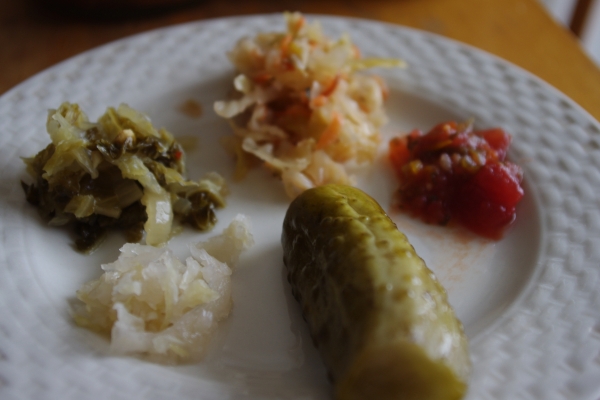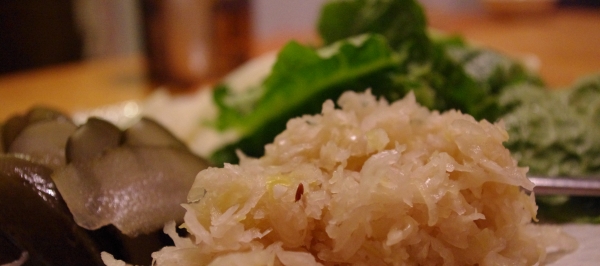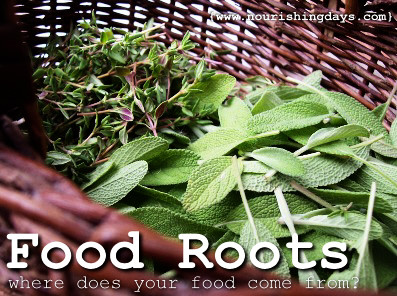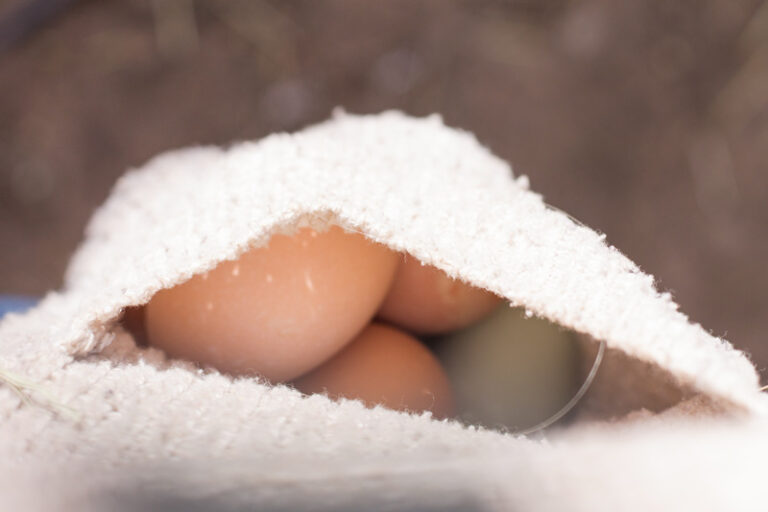Why Fermentation Is So Important: An Interview with Jenny McGruther

Yesterday I shared with you why I am a huge fan of fermentation and what the vegetables I fermented last summer look like now. Today I thought I’d share an interview I did with Jenny McGruther of Nourished Kitchen.
Jenny has put together an online class covering 13 topics in fermentation – from dairy to non-dairy kefir to vegetables to meats. I had a few questions for her, and I know you did too, so let’s find out why Jenny thinks fermentation is so important.
Why is lacto-fermentation nutritionally superior to canning?
Jenny: I’m a big believer in food preservation and while our growing season in the mountains is only about 75 days long, we preserve so much that we’re still eating summer- and fall-harvested vegetables well into April and May. I don’t typically use canning any more because other methods of preservation are so much better.
Fermentation is my method of choice, along with sun-drying. Fermentation preserves the foods in their raw state, providing a nutritionally superior method of preserving foods. Vitamin content, particularly B complex vitamins, vitamin C and vitamin K2, is actually increased through fermentation. In this way sauerkraut or kimchi – both naturally fermented cabbage dishes – are nutritionally superior than raw cabbage. Additionally, food enzymes which help us to better digest our foods are increased with fermentation as are beneficial bacteria which help to bolster the immune system.
By contrast, heat-sensitive food enzymes are destroyed with both water bath- and pressure canning as are most vitamins. Up to 90% of the vitamin C content is lost during canning. So home-canned or commercially canned foods might fill you up, but it provides very little actual nourishment.

Why is lacto-fermentation for those interested in sustainability?
Jenny: My husband and I created and continue to manage one of the most progressive farmers markets in Colorado, so we place exceptional value on local, sustainable foods. For us, fermentation affords the opportunity to not only nourish our family in better, more traditional ways, but also preserve the harvest. Fermentation extends the harvest – cucumbers last months longer as true sour pickles, cabbage can last for years as sauerkraut.
How can your online class benefit someone who has read Nourishing Traditions or Wild Fermentation?
Jenny: Nourishing Traditions and Wild Fermentation are both essential books for traditional foods enthusiasts, locavores and those interested in fermentation; however, Get Cultured! provides instructional support through videos – home cooks can actually see the methods used, improving their skill at preparing fermented foods; moreover, through conference calls with other participants and interviews with leaders in the field like Donna Gates of Body Ecology Diet, participants learn a lot more about how probiotic fermented foods contribute to systemic wellness. They’re also afforded the ability to troubleshoot potential issues like runny yogurt, moldy sauerkraut or kombucha gone funky. Even the best books on the subject don’t offer that kind of comprehensive support.
Why is now the time to learn how to ferment food?
Jenny: Many participants have registered for Get Cultured! now precisely because it’s not yet the growing season. Now is the time to learn the techniques of food fermentation and preservation through fermentation before you’re swamped with planting or harvesting. By learning the techniques now, and reviewing them later since you have lifetime access, you’ll be fully prepared when he growing season arrives.
Nourishing Days readers can use the coupon code NOURISHING and get $50 off early enrollment for the Get Cultured! ecourse.



Hi!
I am new to the idea of fermenting. A friend referred me. I do have a question. My husband is prone to high blood pressure. We have to watch our salt content on everything we buy. I don’t cook with salt. How high is the sodium content of the vegetables you ferment? Thanks!
My husbands blood pressure went down with kombucha and fermented foods. Be sure to use Celtic sea salt not sodium chloride as found in the stores. The chemical made salt is what causes high blood pressure. The wet gray salt has minerals and other nutrtients that the body to utilizes and has not raised my husbands blood pressure at all. Fermenting the foods also helps with the body’s using these nutrients in the salt. check out the Weston A Price website for more information on sea salt.
I just signed up and am so excited!!!
Great round up on ferments! LOVE this 🙂
We have a large family, and literally preserve hundreds of jars of fruit, pickles, tomatoes, salsas, pasta sauces, soups, etc. We also dry a lot of fruit and veggies, and even in our northern climate, try to grow fresh year-round with gra green house and sprouting. I love the IDEA of fermentation, and get the health benefit, but truly if I had to keep enough veggies to feed my family in my refrigerator, that would never work.
What did they do in the “old days”, before refrigeration? Isn’t lacto fermentation a really old method of preservation?
Shawna – That is a great question! I’m not sure if you’ve followed along in our off-grid journey, but we currently live without grid electricity and are starting a homestead from scratch. When we lived on-grid I used to keep gallons of ferments in the fridge for winter, but that isn’t sustainable.
So, as in the olden days, we are going to begin work on digging and building a root cellar. This is how ferments were kept before refrigeration. Cold storage can mean refrigeration, a cool basement, a root cellar, or even a cooler put into a hole in the ground (something I will be doing very soon).
To me, practically speaking, that is one of the benefits of fermentation. It preserves food without the need for huge amounts of energy in the form of refrigeration or canning.
Im a newbie at this, would love to learn more. Hoping to win the on-line class! Thanks Brenda
Awesome, since I am a complete Idiot about fermenting then I would love to win this!! Thanks for giving me a chance to win this great book.
Thanks, Shirley
My sis-in-law has been following the GAPS diet with her severely autistic son for a while now, and is constantly singing the praises of fermented foods but I still don’t really have a clue what she’s talking about. I’m guessing your book would help!
new to fermentation but so excited about the possibilities. I don’t have a pressure canner so I water bath can what is possible and freeze the rest. I can’t wait to get started! I’ve done kimshi, sauerkraut, pickles and beets so far with my limited knowledge (and “Nourishing Traditions”). thanks for offering this